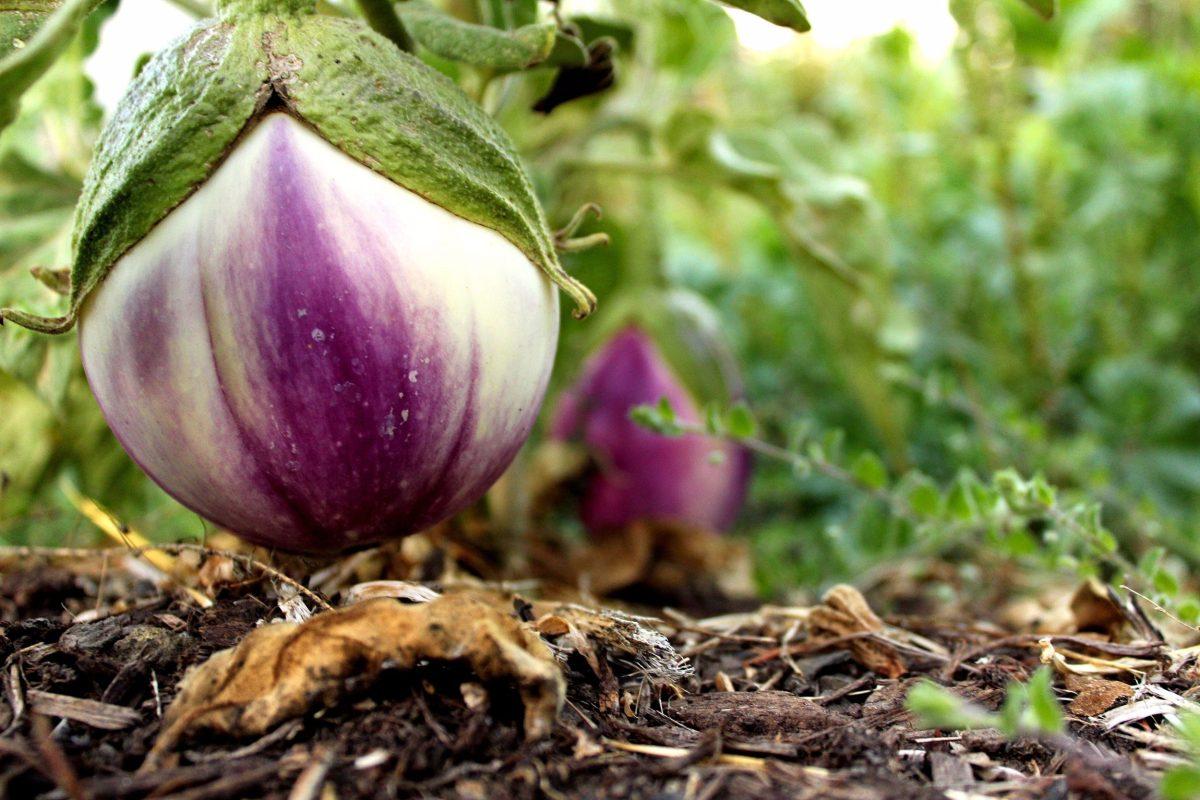Every Monday from noon to 2 p.m. students can grab some gardening gloves and become a part of the growing, harvesting and composting of food.
Located next to the Environmental Technology Center in the northwest region of campus, the Garden Classroom is a garden where students play an active role in the cultivation of crops which are donated to a local food pantry, Neighbors Organized Against Hunger. By experiencing firsthand how some foods are tended to and grown, students can enter not only a working environment, but a learning one.
Peter Forte, a second-year liberal studies major and sustainability coordinator for Join Us Making Progress, an on-campus organization better known as JUMP, said he believes in creating a learning opportunity for students who visit the garden.
“If we have new members that come out, I think giving them a tutorial of the garden is a good idea… and getting their feedback,” Forte said. “That definitely requires, on my part, getting new [students] out so we can educate more people. I think that’s one way we can really lessen our global, ecological footprint.”
In celebration of Earth Week, JUMP recently held a party event at the campus garden where several students were able to assist in a gardening project.
Forte said he continues to search for more student input on similar events that could draw more students to the garden
One student volunteer who highly values what the garden has to offer is Stuart Alexander Lee, a senior geology major. Lee said his main role in the Garden Classroom is garden steward. Garden stewards, alongside the agroecology class and JUMP, help in the garden with a more hands-on approach.
Lee said he spent the summer as one of the sole caretakers of the garden.
“I’ve learned a lot about gardening… it’s really rewarding to give all the food to the local food bank every Wednesday,” Lee said. “That’s been one of the best parts… being able to see how much people benefit from the garden and all the hard work that we put in.”
Lee said he sees the student-run garden as a way of making a community and allowing students to experience learning outside of a textbook.
Mikayla Martin, a second-year undeclared student and new volunteer at the garden, said she enjoyed getting her hands dirty with some weeding and tilling of the garden beds.
Martin said she saw the difference just a short amount of hard work can make, and views the campus’ garden to be invaluable.
“I think it is important for college campuses to have gardens because the food can be… donated to people in the surrounding community,” Martin said. “It’s also a great way to educate people on plants, where their food comes from, and an opportunity to work with the Earth.”
As someone who did not have much previous gardening experience beforehand, Martin said she was able to reap what she sewed, which inspired her to keep coming back for more.
Forte, who organizes and leads garden volunteer days, said he is aware of the hard work of everyone who contributes to the garden and hopes for more opportunities to share the benefits with the rest of Sonoma State.
“I really hope that [people] appreciate what other students are trying to do here… what type of a space this could be for people, and what it is for people right now,” Forte said.
Forte said a campus garden may not be an innovation, but for someone as passionate about the garden as he is, it is an important part of the Sonoma State community.
“The fact that [the garden is] up and running, the fact that it has people to work it is pretty amazing,” Forte said. “The only thing is the rest of the population needs to know about it. I’m really proud of my school for having a place like this.”
For questions about volunteer opportunities or garden events, [email protected].





![[Both photos courtesy of sonoma.edu]
Ming-Ting Mike Lee stepped in as the new SSU president following Sakakis resignation in July 2022](https://sonomastatestar.com/wp-content/uploads/2024/04/CC4520AB-22A7-41B2-9F6F-2A2D5F76A28C-1200x1200.jpeg)


























